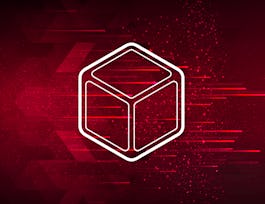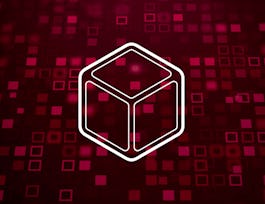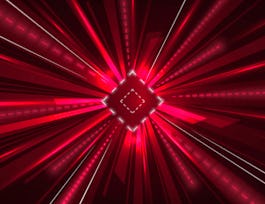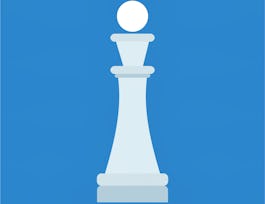Today, large intermediaries establish trust in our economy and control the movement, storage, and allocation of money and assets. The status quo, however, is rife with inefficiencies. In this course, we’ll address the many challenges of the status quo and discuss how cryptoassets, smart contracts, new identity systems, and new financial business models can help overcome them. You’ll learn how blockchain technology empowers individuals, entrepreneurs, and businesses with the tools they need to help level the playing field and to participate in the value they create. By the end of this course, you’ll learn how and why transacting on the blockchain can help us bring about a future that is faster, fairer, and more distributed than the world we inhabit today.


Blockchain, Cryptoassets, and Decentralized Finance
This course is part of Blockchain Revolution in Financial Services Specialization
Taught in English
Some content may not be translated


Instructors: Don Tapscott
15,313 already enrolled
Included with 
Course
(360 reviews)
97%
Recommended experience
What you'll learn
Describe seven types of cryptoassets, and explain what it means to “tokenize” an asset
Explain what a smart contract is, as well as various applications of smart contracts
Explore the features of a distributed, self-sovereign identity system
Describe eight core functions of the financial services industry and explain how blockchain will disrupt each of these functions
Skills you'll gain
Details to know

Add to your LinkedIn profile
16 quizzes
Course
(360 reviews)
97%
Recommended experience
See how employees at top companies are mastering in-demand skills

Build your subject-matter expertise
- Learn new concepts from industry experts
- Gain a foundational understanding of a subject or tool
- Develop job-relevant skills with hands-on projects
- Earn a shareable career certificate


Earn a career certificate
Add this credential to your LinkedIn profile, resume, or CV
Share it on social media and in your performance review

There are 4 modules in this course
Blockchain is the first native digital medium for value. Consequently, we are witnessing one of the largest transformations of wealth in human history—from paper-based analog assets to digital ones. In this module, students will learn about nine different kinds of cryptoassets, including cryptocurrencies, protocol tokens, non-fungible tokens (NFTs), stablecoins, securities tokens, governance tokens, exchange tokens, natural asset tokens, and central bank digital currencies (CBDCs).
What's included
14 videos12 readings4 quizzes2 discussion prompts
In this module, you will learn what smart contracts are and how they work. We will discuss how blockchain-based smart contracts can enable individuals and organizations to reduce transaction costs, minimize the need for third-party intermediaries, and improve productivity, security, and privacy.
What's included
11 videos4 readings5 quizzes2 discussion prompts
Accessing large, centralized systems such as email, health insurance, or a bank account requires the provision of various identifiers—for example, government-issued ID cards, self-selected passwords, or biometric data. However, identifier-based systems are problematic—both administratively and philosophically. In this module you will learn about five problems with identifier-based systems and explain how a distributed self-sovereign identity system, deployed on the blockchain, can resolve many of these issues.
What's included
9 videos3 readings3 quizzes2 discussion prompts
There are countless opportunities for blockchain to disrupt or displace traditional centralized business models. In this module, we explore how blockchain technology can support “open networked enterprise” business models through the inclusion of native payment systems, reputation systems, uncensorable content, trustless transactions, smart contracts, and autonomous agents.
What's included
16 videos7 readings4 quizzes1 discussion prompt
Offered by
Recommended if you're interested in Computer Security and Networks
Why people choose Coursera for their career




Learner reviews
Showing 3 of 360
360 reviews
- 5 stars
75.55%
- 4 stars
16.38%
- 3 stars
5.27%
- 2 stars
2.22%
- 1 star
0.55%
New to Computer Security and Networks? Start here.

Open new doors with Coursera Plus
Unlimited access to 7,000+ world-class courses, hands-on projects, and job-ready certificate programs - all included in your subscription
Advance your career with an online degree
Earn a degree from world-class universities - 100% online
Join over 3,400 global companies that choose Coursera for Business
Upskill your employees to excel in the digital economy
Frequently asked questions
Access to lectures and assignments depends on your type of enrollment. If you take a course in audit mode, you will be able to see most course materials for free. To access graded assignments and to earn a Certificate, you will need to purchase the Certificate experience, during or after your audit. If you don't see the audit option:
The course may not offer an audit option. You can try a Free Trial instead, or apply for Financial Aid.
The course may offer 'Full Course, No Certificate' instead. This option lets you see all course materials, submit required assessments, and get a final grade. This also means that you will not be able to purchase a Certificate experience.
When you enroll in the course, you get access to all of the courses in the Specialization, and you earn a certificate when you complete the work. Your electronic Certificate will be added to your Accomplishments page - from there, you can print your Certificate or add it to your LinkedIn profile. If you only want to read and view the course content, you can audit the course for free.
If you subscribed, you get a 7-day free trial during which you can cancel at no penalty. After that, we don’t give refunds, but you can cancel your subscription at any time. See our full refund policy.





